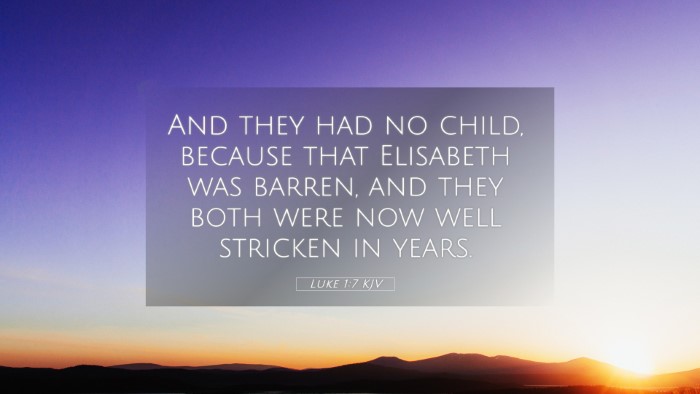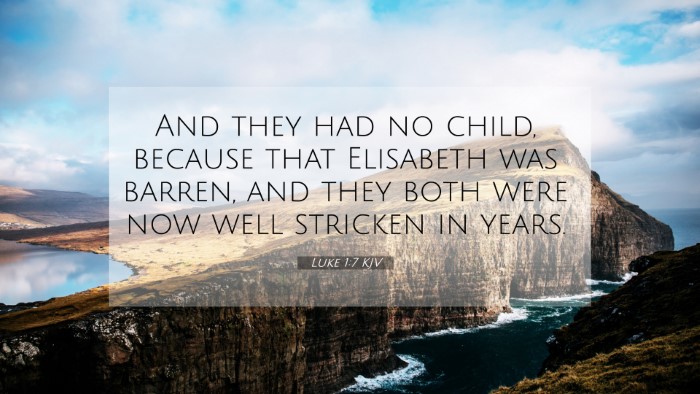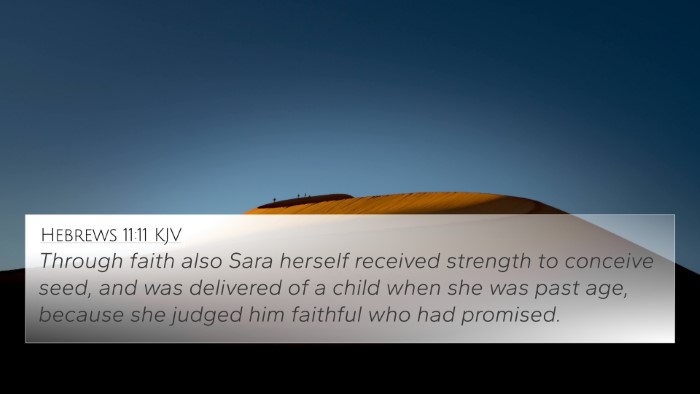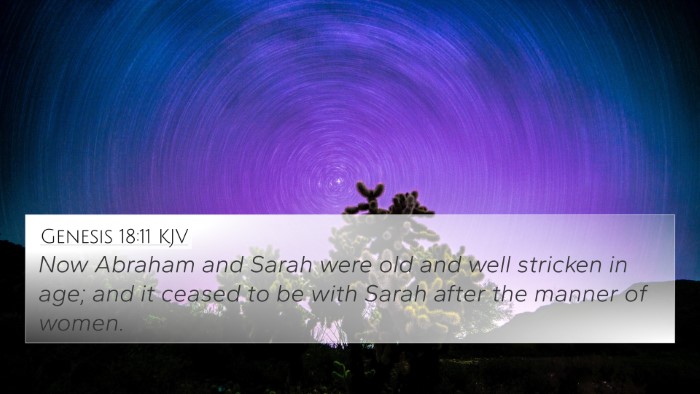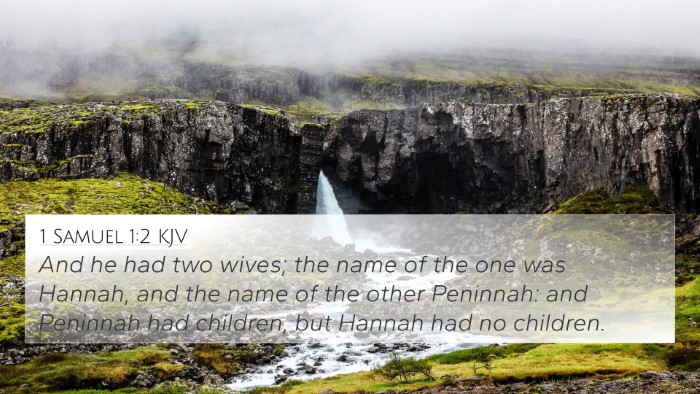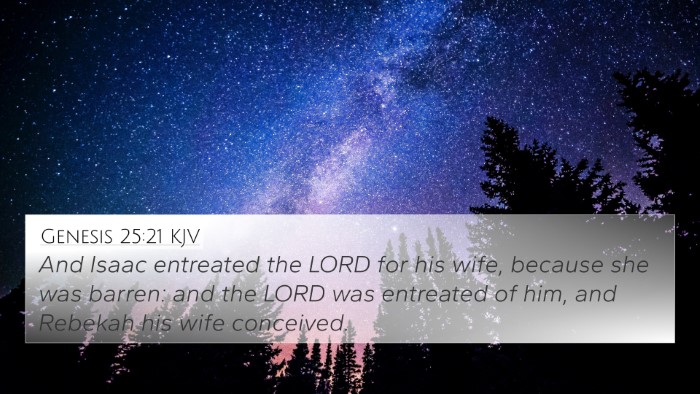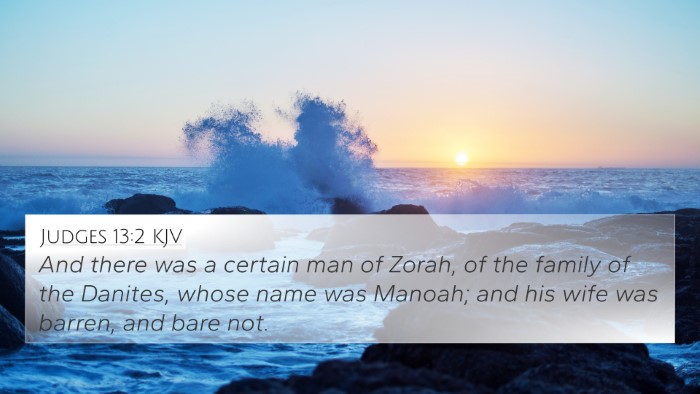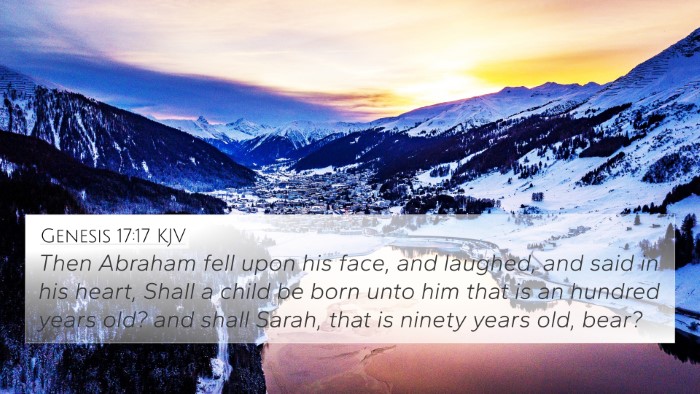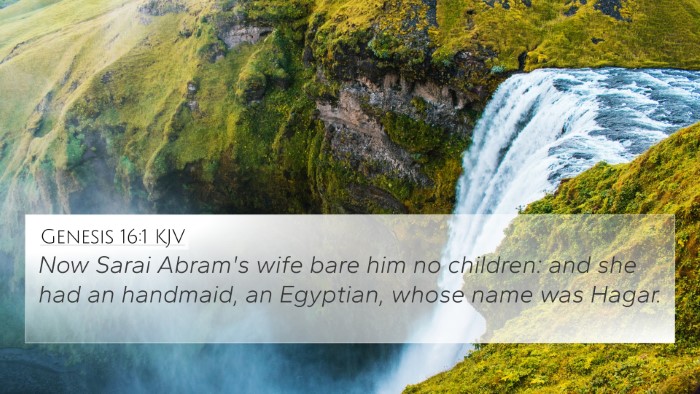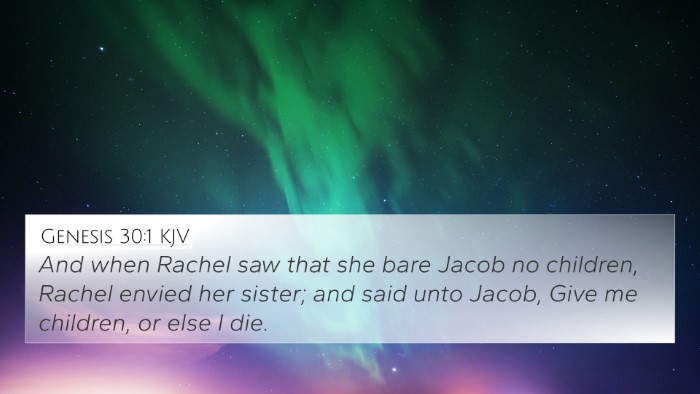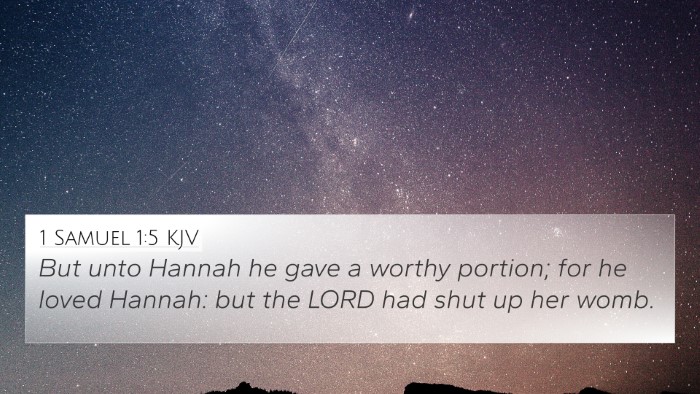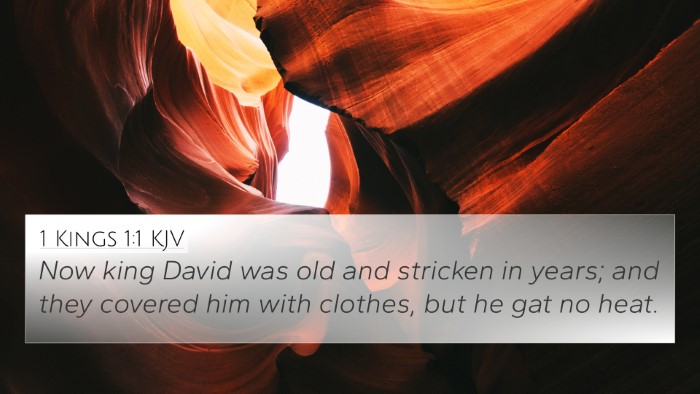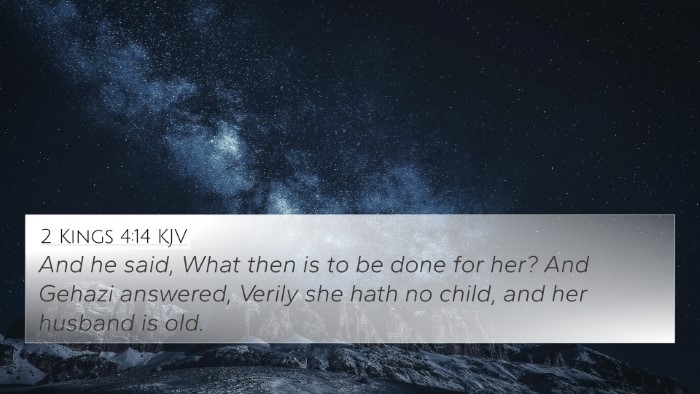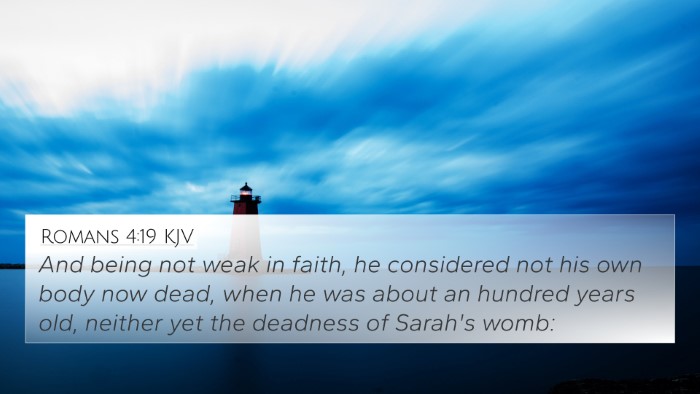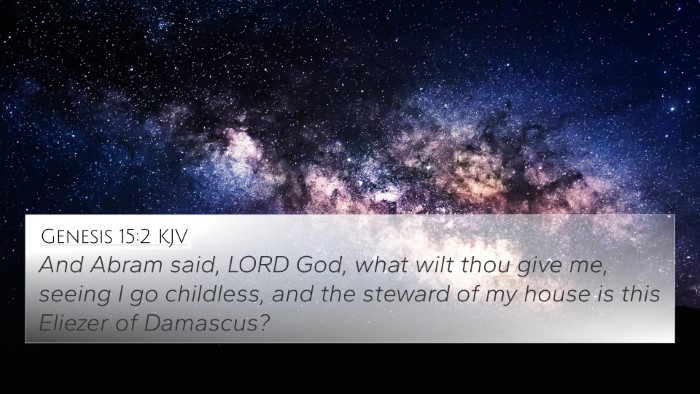Understanding Luke 1:7
Luke 1:7 states: "And they had no child, because that Elizabeth was barren, and they both were now well stricken in years."
This verse introduces us to the profound struggles of Zechariah and Elizabeth, emphasizing their longing for a child and their advanced age. This situation sets the stage for a miraculous event that unfolds later in the narrative. Through a combination of insights drawn from public domain commentaries by Matthew Henry, Albert Barnes, and Adam Clarke, we can delve deeper into its meaning, connect it with other biblical passages, and explore its thematic resonance.
Contextual Analysis
The context of this verse is vital for understanding its deeper implications. Zechariah, a priest, and Elizabeth are described as righteous before God, yet their life's circumstance—a childless marriage—highlights a contrast between their faithfulness and societal expectations.
Matthew Henry notes that despite their piety, they experienced personal hardship. This serves to remind believers that righteousness does not exempt one from life's trials and tribulations. Similarly, Albert Barnes points out that Elizabeth's barrenness symbolizes the expectations and hopes that are often unmet in life, creating a relatable struggle for many.
Key Themes
- Barrenness and Hope: The challenges faced by Elizabeth highlight the theme of hope amidst disappointment.
- Faithfulness in Adversity: The couple's unwavering faith in God despite their struggles exemplifies true devotion.
- Divine Intervention: The narrative foreshadows God's impending miraculous action in their lives.
Cross-References in the Bible
Luke 1:7 is not an isolated verse; it resonates with several other passages within Scripture. Here are key cross-references that highlight its thematic connections:
- Genesis 16:1-2: Sarah's barrenness and her decision to use Hagar to bear a child.
- 1 Samuel 1:5-7: Hannah's struggle with infertility and how it parallels Elizabeth's experience.
- Isaiah 54:1: A prophetic encouragement to the barren, illustrating a theme of eventual rejoicing.
- Luke 1:13: The announcement of Zechariah's prayer being answered, opening the door to divine fulfillment.
- Galatians 4:27: Ties back to the Isaiah text, reinforcing the theme of joy arising from barrenness.
- Hebrews 11:11: Context of faith displayed by Sarah and others who believed in God’s promises despite odds.
- John 16:21: The analogy of a woman in labor, which can reflect the theme of pain leading to joy.
Thematic Connections
Understanding Luke 1:7 necessitates examining its connections with other scriptures through thematic lenses. Here are some themes to explore:
-
Women of Faith: The narratives of Sarah (Genesis) and Hannah (1 Samuel) highlight similar struggles, showcasing the emotional and social dilemmas faced by women who longed for children.
-
God's Promises: Across the scriptures, God often fulfills His promises in ways that seem improbable, reinforcing that His power transcends human limitations.
-
The Role of Prayer: Zechariah's position as a priest emphasizes the importance of prayer and supplication in seeking divine assistance during struggles.
Exegesis and Interpretation
Exegesis of Luke 1:7 reveals deeper insights into the human condition mapped against divine providence. Adam Clarke emphasizes the struggle faced by the couple not merely as a physical ailment but as a spiritual journey. The barrenness was not just an absence of children, but a practical metaphor for unfulfilled hopes that many might face in their lives.
This verse invites the reader to reflect on:
- Personal Reflection: How do personal struggles impact one’s faith journey?
- Community Aspects: How does society’s view on traditional success dictate personal worth?
- Understanding God's Timing: How to reconcile personal timelines with God’s perfect timing?
Conclusion
In conclusion, Luke 1:7 encapsulates a wealth of insights that go beyond a mere historical account of Zechariah and Elizabeth’s lives. It reflects deep themes of hope, faith, and divine intervention, urging readers to acknowledge the interconnectedness of their own struggles with those depicted throughout biblical history.
As believers explore Bible verse cross-references for Luke 1:7, they are not only examining individual texts but engaging in the rich tapestry of Connections between Bible verses that form the core of the Scripture’s message. This approach enhances understanding, allowing for a more profound engagement with the text and its application in contemporary life. The stories of Zechariah and Elizabeth serve both as a reminder of struggles and as a testament to the faithfulness of God in fulfilling His promises, encouraging believers to persist in faith, no matter the challenges they face.

